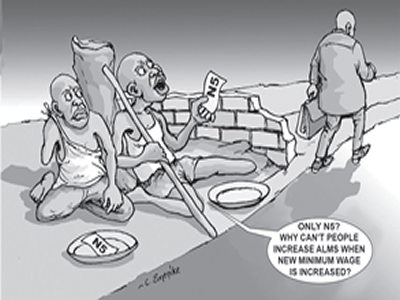
The Governor of Zamfara State and Chairman of the Nigerian Governors’ Forum (NGF), Abdulaziz Yari, last week, said that there was a likelihood that Nigeria might slip into another economic recession in 2020 that may last till 2021.
He was speaking at the opening ceremony of an induction programme for newly-elected and returning governors in Abuja.
He said: “…This scenario is a wake-up call for all of you to come amply prepared to face these kinds of challenges especially since we are expecting the possibility of another cycle of recession by mid-2020, which may last up to third quarter of 2021.”
Nigeria had, in 2016, entered its first recession. That was the first in about two decades.
Yari went further to say that borrowing, which is becoming fashionable among states and the federal government, was not a good means of solving economic problems.
He said that both incoming governors and the second termers needed to brace up for the realities of governance, insisting that internally generated revenue (IGR) was a key part of success for state governments.
Of all that Yari said at the ceremony, the one that drew much concern to the larger public was the possibility of another recession. Hence, the following day, the Central Bank of Nigeria (CBN) quickly dispelled the governor’s view, arguing that the economy was on the right track – there was no possibility of any recession.
CBN’s Deputy Governor, Economic Policy, Dr. Joseph Nnanna, dismissed the governors’ claims. He spoke at the public presentation of the Spring 2019 edition of Regional Economic Outlook (REO) by the International Monetary Fund (IMF) in Abuja.
Nnanna stated that Nigeria was making smooth progress towards growth and, by end of 2019, all things being equal, Nigeria would likely have between 2.8 per cent and three per cent GDP (Gross Domestic Product) growth rate.
“Right now, we are on the path of achieving our price stability goal of single-digit inflation. Are we going to witness increased inflation or are we sliding back into recession? My answer is no. But is that adequate? My answer is no. Three per cent GDP real growth rate is not enough for Nigeria where our population growth rate is 3.2 per cent.”
We are worried that Yari might be saying a bitter truth that may not be acknowledged by key players in the country’s economy. With the position of the CBN that the population growth is higher than the country’s GDP, we believe that Yari’s position should not be dismissed as an alarmist’s cry.
For one, there are serious causes for concern in the present day governments. The massive borrowing that has become part of our culture is one that rankles the brain. How does Nigeria intend to come out of the borrowing circle with debts mounting every day?
Add that to the failure of most states of the federation to develop their IGR mechanisms, but rather dwell much on allocations from Abuja.
By the last count, only about five states, namely Lagos, Rivers, Ogun, Delta and Kano generate something that is reasonable from within. Perhaps, the inability of states to generate their own revenues could be illustrated by the fact that Lagos alone generates more than the IGR of about 31 states combined.
Quite instructively too, President Muhammadu Buhari recently signed into law the National Minimum Wage Bill, which mandates all the states, public and private institutions to pay not less than N30,000 as minimum wage to workers.
We believe that with most states struggling to pay the salaries of their workers at N18,000 minimum wage, the N30,000 approved by the Federal Government would add additional burden on the states.
When combined, the poor IGR by states, huge debt servicing and the new minimum wage, all together mean higher expenditure, less revenue for the states.
That is why we believe that Yari might not be spot on with recession, but he is right that the states need to brace up for challenges and work harder for the progress and survival of their states.
We note that the revenue sharing formula among the federal, states and local governments currently does not raise any hope that the fortunes of states would improve.
We also note with regret that some state governors lack the initiative on improving the status of their states. Rather than look inward to generate resources within their states, they dwell more on chopping off huge security votes from their allocations, while others have made Abuja their permanent homes away from their states.
We are of the view that whether Yari’s recession comes or not, there is the need for governors to focus on serious governance at the states. There is no state in the country that is not blessed with one mineral resource or the other. There is also no state that does not have means of generating revenue, if proper planning is done. That is the reality of Yari’s prophesy.
President Buhari had previously warned Nigerians that the next four years would be tough. Others have said that economic outlook was not good. Yari only took it a notch higher. States need to brace up for good governance from May 29.
END

Be the first to comment